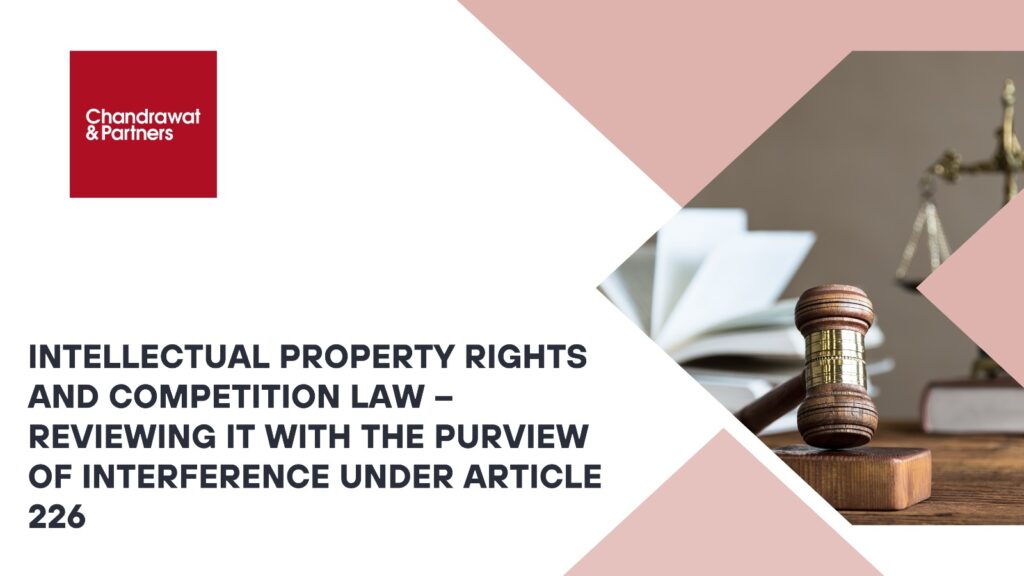INTRODUCTION
Intellectual Property (IP) Law grants exclusive rights to IP holders, allowing them to exclude others from using their creations. On the other hand, Competition Law opposes such exclusive monopolistic rights, striving to preserve and promote effective competition. IP rights should serve as incentives for innovators rather than distorting market competition. While IP rights have noble intentions, their exercise can sometimes disrupt effective competition.
CONTRAST BETWEEN INTELLECTUAL PROPERTY RIGHTS AND COMPETITION LAW
IP rights inherently conflict with Competition Law. While the Competition Act, 2002, allows IP holders to impose conditions on their IP under Section 3(5), these conditions must not be unreasonable. The crux of the matter lies in defining what constitutes “unreasonable conditions” within the scope of IP protection.
IP RIGHTS AND PATENT ACT INCONSISTENCY
Under the Patent Act, exclusivity is conferred with the grant itself, highlighting the inherent contradiction between the Competition Act and the Patents Act. While the Competition Act does not directly address this issue, it contains an exception under Article 3(5). In many cases, parties are accused of imposing unreasonable restrictions to protect their IP from infringement.
RECIPROCAL CHALLENGES BETWEEN PATENTS ACT AND COMPETITION ACT
The Patent Act offers two remedies: compulsory licensing under Section 84 and patent revocation under Article 85. However, these remedies are often inadequate for dealing with disputes involving competition law aspects. In practice, patent holders often escape the jurisdiction of the Competition Commission of India (CCI) by using Article 226 and approaching the High Court (HC) to protect their rights conferred by the Patents Act.
Courts have addressed the issue of jurisdiction and conflicting provisions between the Patent Act and the Competition Act in cases like L.M. Ericsson v. CCI. In this case, it was held that there is no irreconcilable conflict between the two acts, and the jurisdictions of CCI and the Controller General (CG) of Patents do not overlap.
ROLE OF COURT INTERFERENCE
There is no direct interference by courts in disputes related to Section 3(5) of the Competition Act. Although IP holders often question CCI’s jurisdiction by using Article 226, HCs have consistently upheld the jurisdiction of CCI. They either reject the IP holder’s application or, when considered, provide judgments in favor of CCI, allowing investigations to proceed.
This underscores that CCI’s jurisdiction in IP-related competition matters should not be contested. There is no inherent contradiction between the jurisdiction of relevant IP authorities (e.g., CG in the Patents Act) and CCI. While total abolition of Article 226 in these IP-Competition disputes is not feasible, the indirect court interference acts as a form of judicial review in these cases, ensuring that Section 3(5) cases receive meticulous scrutiny from CCI, which is essential for the integrity of competition law.
For more information or queries, please email us at
enquiries@chandrawatpartners.com




